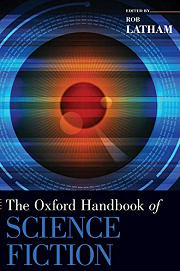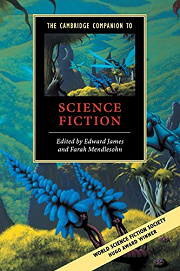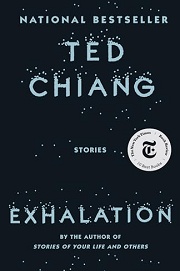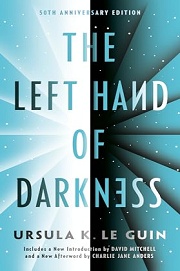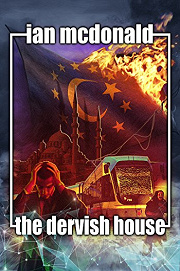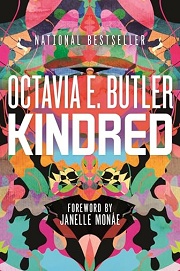Share your thoughts in a quick Shelf Talk!
The Oxford Handbook of Science Fiction by Rob Latham
From alien encounters to time travel and technofutures, The Oxford Handbook of Science Fiction is a guided tour through the genre’s big ideas, movements, and milestones—perfect for readers who want a smart, wide-ranging map to the worlds SF has imagined.
Have you read this book? Share what you liked (or didn’t), and we’ll use your answers to recommend your next favorite read!
Love The Oxford Handbook of Science Fiction but not sure what to read next?
These picks are popular with readers who enjoyed this book. Complete a quick Shelf Talk to get recommendations made just for you! Warning: possible spoilers for The Oxford Handbook of Science Fiction below.
In The Oxford Handbook of Science Fiction, did you enjoy ...
... a rigorous, scholarly overview of SF history and theory?
The Cambridge Companion to Science Fiction by Edward James and Farah Mendlesohn
If the historically grounded, multi-method breadth of The Oxford Handbook of Science Fiction drew you in, you’ll relish this Companion’s clear, idea-dense essays. It synthesizes topics you likely enjoyed—cyberpunk’s evolution from Neuromancer and Blade Runner, Golden Age magazine culture, global and media SF—into crisp chapters you can dip into. It’s the same heady mix of history, theory, and case studies, but with tightly curated introductions that make complex debates (from fandom to formalism) immediately usable for your own reading.
... big-idea thought experiments that probe consciousness, causality, and ethics?
Exhalation by Ted Chiang
You appreciated how the Handbook unpacked mind-bending premises through philosophy and cultural theory; Chiang gives you those ideas as unforgettable stories. From the self-dissection in “Exhalation” that reverses thermodynamics into a meditation on free will, to the braided time-travel confessions of “The Merchant and the Alchemist’s Gate,” to digital personhood and care work in “The Lifecycle of Software Objects,” these tales deliver the same conceptual rigor you saw in discussions of artificial intelligence, temporality, and identity—only now with heart-stopping narrative payoff.
... the sociological and anthropological angles on worldbuilding and gender?
The Left Hand Of Darkness by Ursula K. Le Guin
If what hooked you in the Handbook were the sections on gender, anthropology, and how SF reimagines culture, Le Guin’s classic will feel like a case study come to life. Follow envoy Genly Ai and exile Estravan across the ice of Gethen, where ambisexuality and kemmer unsettle every social norm. The painstaking cultural detail—rituals of shifgrethor, the politics of Karhide and Orgoreyn—matches the analytic depth you enjoyed in essays on social SF, but it’s delivered through a bittersweet journey of trust and betrayal.
... hearing many voices and approaches—historical roots, tech futures, and global SF—side by side?
The Dervish House by Ian McDonald
The Handbook’s panorama of voices and subfields likely appealed to you; McDonald’s Istanbul mosaic offers that same polyphony in fiction. Across six intertwined perspectives—Ayşe’s antiquities hunt, Necdet’s terrifying nanotech visions, young Can Durukan’s spy drone sleuthing—you’ll see economics, faith, history, and cutting-edge biotech collide in one living city. It’s like moving from an essay on global SF and technoculture into a vibrant, street-level narrative that lets each strand illuminate the others.
... attention to race, gender, and postcolonial perspectives in SF?
Kindred by Octavia E. Butler
If you were drawn to the Handbook’s engagement with Afrofuturism and the politics of representation, Butler’s time-travel masterpiece makes those conversations visceral. When Dana is pulled from 1976 California to antebellum Maryland to save the life of Rufus Weylin, every rescue forces her to confront power, complicity, and survival. The intimate, harrowing scenes at the Weylin plantation turn the theoretical lenses you enjoyed—on history, identity, and agency—into a tense, character-driven reckoning you won’t forget.
Unlock your personalized book recommendations! Just take a quick Shelf Talk for The Oxford Handbook of Science Fiction by Rob Latham. It’s only a few questions and takes less than a minute.
